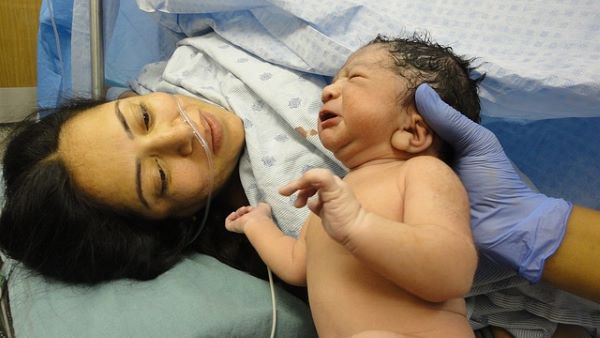Post Natal Psychosis, also known as Postpartum Psychosis, is a severe mental health condition that affects some women after childbirth. It is a rare but serious condition, occurring in approximately 1 to 2 out of every 1,000 births, according to a study published in the Indian Journal of Psychiatry. In India, awareness and understanding of Post Natal Psychosis remain limited, with many women not receiving the timely care and support they need. Misconceptions and myths about this condition often lead to stigma, inadequate treatment, and a lack of proper care. This article aims to debunk common myths surrounding Post Natal Psychosis and provide accurate, research-based information to help improve understanding and support for affected women.
10 Common Myths About Post-Natal Psychosis
Myth 1: Post Natal Psychosis is Just a Severe Case of Baby Blues
Fact: While “baby blues” are common and generally mild, Post Natal Psychosis is a much more severe condition that requires immediate medical attention. The American Psychiatric Association (APA) highlights that unlike baby blues, which involve mild mood swings, Post Natal Psychosis can include hallucinations, delusions, and severe mood disturbances, putting both the mother and baby at risk. (Source)
Myth 2: Post Natal Psychosis Only Affects Women with a History of Mental Illness
Fact: Although women with a history of mental illness may be at higher risk, Post Natal Psychosis can affect any new mother, regardless of her mental health history. According to research published by the Royal College of Psychiatrists, up to half of the women who develop Post Na (Source)
Myth 3: Post Natal Psychosis Occurs Immediately After Birth
Fact: While Post Natal Psychosis often begins within the first two weeks after childbirth, symptoms can develop gradually over a few months. The National Health Service (NHS) notes that while the onset is typically rapid, some cases may present later, making it crucial to monitor new mothers for an extended period. (Source)
Myth 4: Post Natal Psychosis is Caused by Hormonal Imbalance Alone
Fact: Hormonal changes do play a role, but Post Natal Psychosis is a complex condition influenced by various factors, including genetics, stress, and sleep deprivation. The Mayo Clinic emphasizes that a combination of biological, psychological, and environmental factors contribute to the development of this condition. (Source)
Myth 5: Post Natal Psychosis is a Sign of Weakness or Failure as a Mother
Fact: Post Natal Psychosis is a medical condition and has nothing to do with a woman’s strength or ability as a mother. The World Health Organization (WHO) states that mental health conditions like Post Natal Psychosis are not a reflection of a person’s character or capabilities but are serious health issues that require treatment. (Source)
Myth 6: Post Natal Psychosis Always Leads to Permanent Mental Illness
Fact: With proper treatment, most women with Post Natal Psychosis recover fully and do not develop long-term mental illness. According to the National Institute of Mental Health (NIMH), early intervention and comprehensive care can lead to a complete recovery in most cases.
Also, read: Now Debunking 10 Common Postpartum Psychosis Myths
Myth 7: Women with Post Natal Psychosis Should Not Be Left Alone With Their Babies
Fact: While it is essential to monitor women with Post Natal Psychosis closely, they can still care for their babies with the right support and supervision. The Postpartum Support International (PSI) advises that with proper treatment and a supportive environment, many women can continue to bond with and care for their babies safely. (Source)
Myth 8: Post Natal Psychosis is Rare and Unlikely to Happen to Most Women
Fact: While Post Natal Psychosis is relatively rare, it is still a significant risk that needs to be taken seriously. The Indian Journal of Psychiatry notes that even though it affects a small percentage of women, the potential severity of the condition makes awareness and early intervention crucial. (Source)
Myth 9: Post Natal Psychosis Cannot Be Prevented
Fact: While it cannot be entirely prevented, women at high risk can take steps to reduce the likelihood of developing Post Natal Psychosis. The American College of Obstetricians and Gynecologists (ACOG) suggests that close monitoring, early treatment of mood disturbances, and strong social support can help lower the risk. (Source)
Myth 10: Post-Natal Psychosis Will Resolve On Its Own Without Treatment
Fact: Post Natal Psychosis requires immediate medical treatment and will not go away on its own. The National Health Service (NHS) emphasizes that untreated Post Natal Psychosis can lead to severe consequences, including harm to the mother and baby, making early intervention critical. (Source)
Frequently Asked Questions (FAQs)
Q1: What are the symptoms of Post Natal Psychosis?
A1: Symptoms may include hallucinations, delusions, severe mood swings, confusion, agitation, and difficulty bonding with the baby. These symptoms usually appear within the first two weeks after childbirth.
Q2: How is Post Natal Psychosis treated?
A2: Treatment typically involves a combination of medication, such as antipsychotics or mood stabilizers, and therapy. Hospitalization may be necessary in severe cases to ensure the safety of both the mother and baby.
Q3: Can Post Natal Psychosis affect future pregnancies?
A3: Women who have experienced Post Natal Psychosis are at higher risk of recurrence in future pregnancies, but with careful monitoring and early intervention, the risks can be managed effectively.
Q4: How can family and friends support a loved one with Post Natal Psychosis?
A4: Providing emotional support, helping with baby care, encouraging treatment, and understanding the condition are key ways to support someone with Post Natal Psychosis.
Q5: Is Post Natal Psychosis the same as Postpartum Depression?
A5: No, Post Natal Psychosis is much more severe than Postpartum Depression. It involves a break from reality and requires immediate medical intervention, while Postpartum Depression is more common and involves symptoms like sadness and fatigue.





